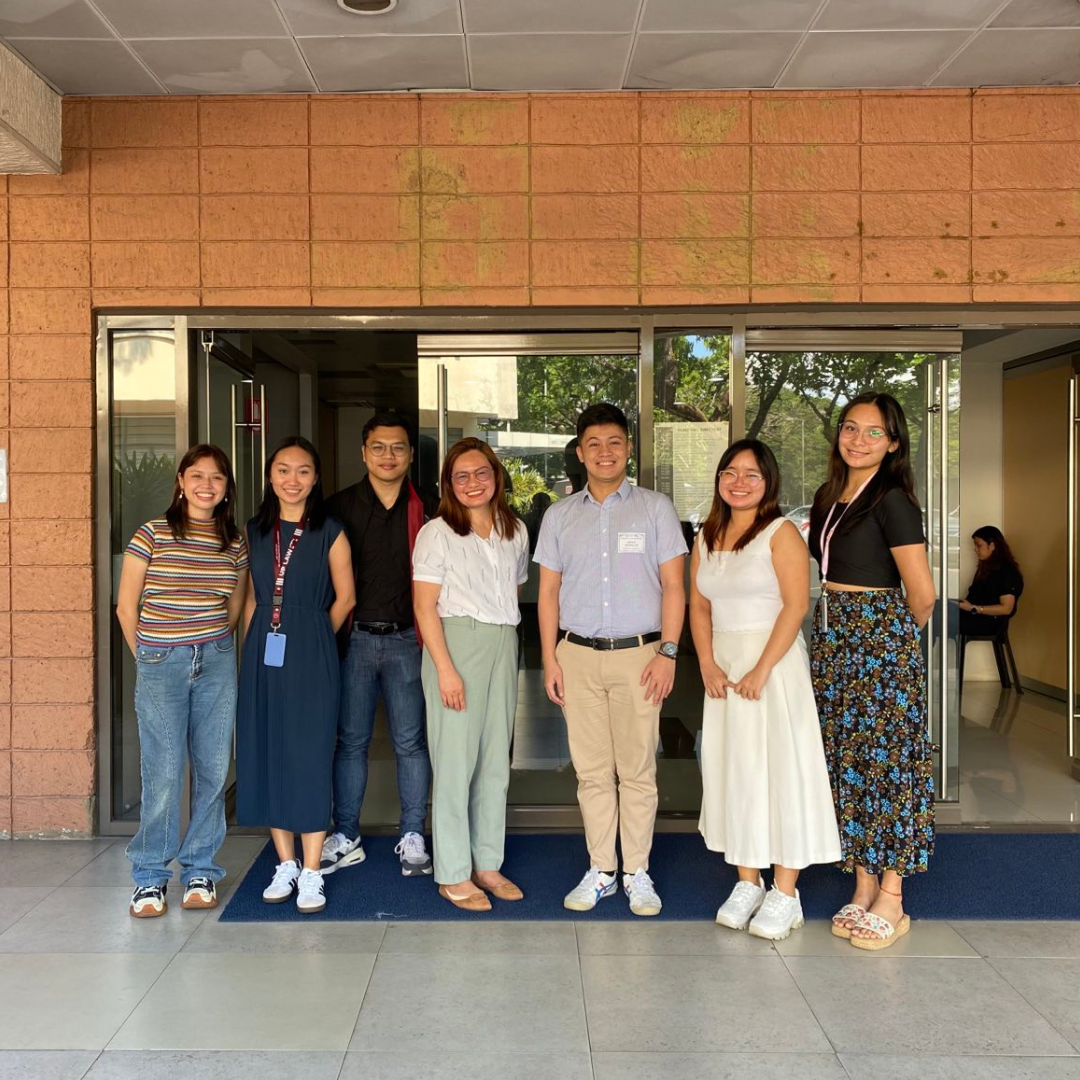by Jan Cherome Sison and Bernardine de Belen
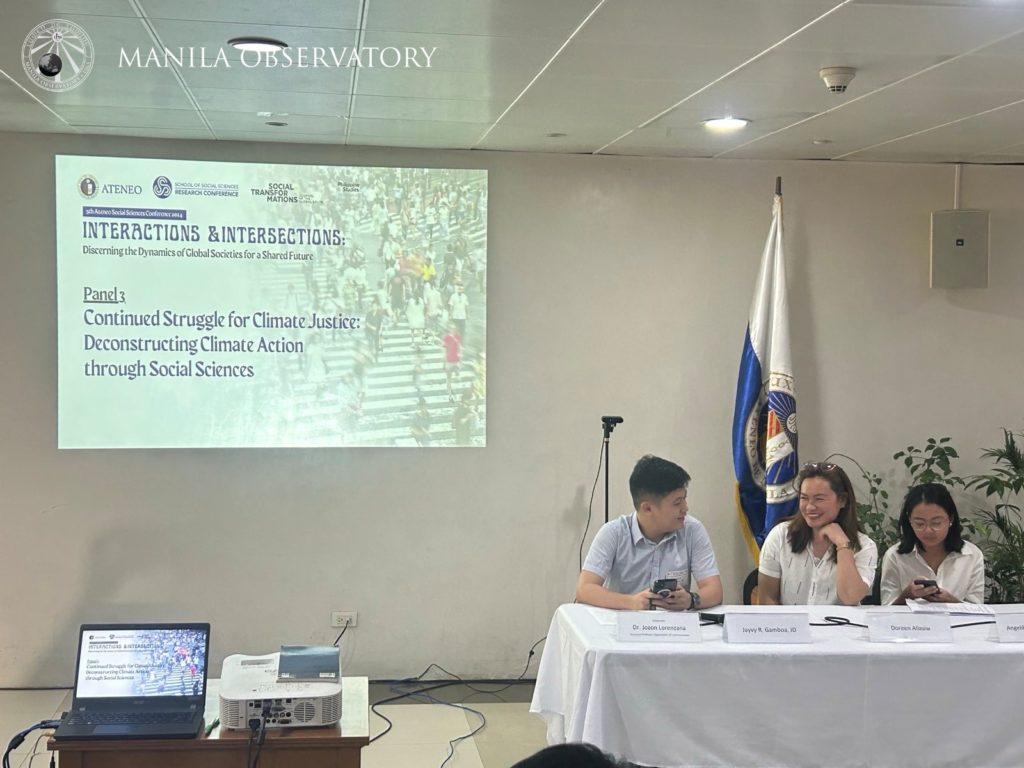
At the recently held 5th Ateneo Social Sciences Conference 2024, Atty. Jayvy Gamboa and Atty. Jameela Joy Reyes presented their research papers entitled “Just Transition Assessment Tool (JTAT) for Social Impacts of Climate Action as applied to the Philippine Jeepney Modernization Case” and “Left out of Discourse: Perspectives from Kaliwa” respectively. In their Panel, “Continued Struggle for Climate Justice: Deconstructing Climate Action through Social Sciences,” they were joined by Parabukas representative Ms. Angelika Lourdes Pizarro, and Benguet State University Assoc. Prof. Doreen Allasiw.
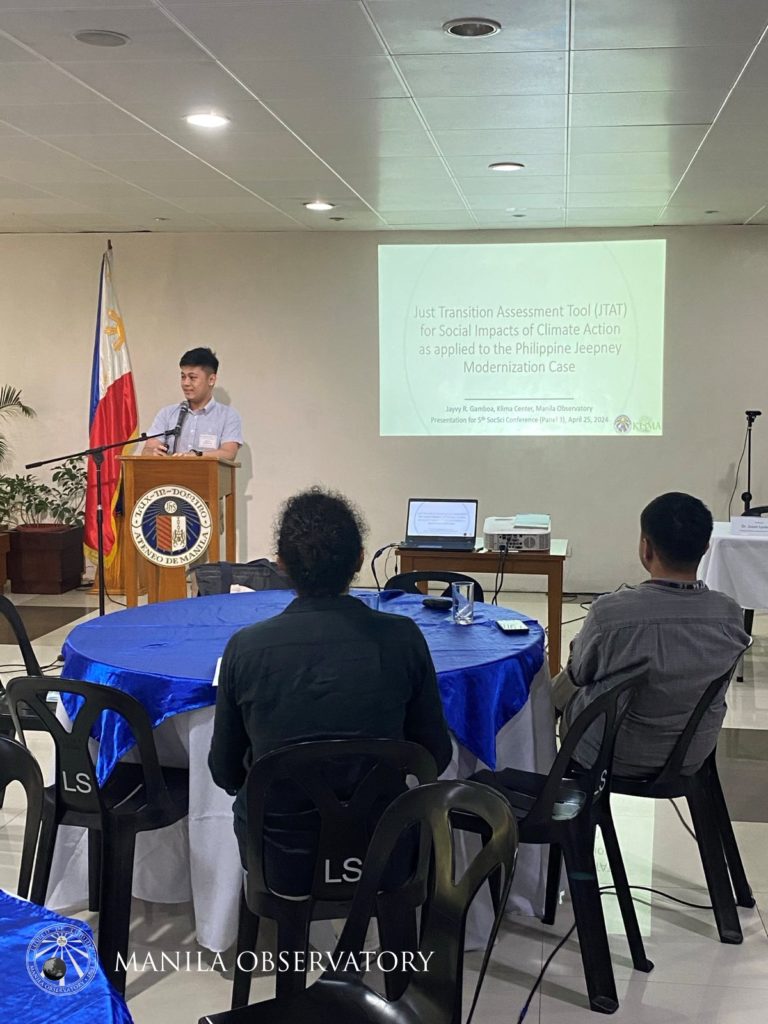
Atty. Gamboa highlighted the complexity of transitioning systems and the pivotal role of frontline communities and vulnerable sectors. He fleshed out the challenges faced by developing and Global South countries in operationalizing just transition, citing issues such as weak social protection systems and widespread poverty. His presentation also emphasized that just transition is not merely a theoretical concept but a practical instrument for accountability.
Atty. Reyes talked about the construction of the Kaliwa Dam in Tanay, Rizal, despite fierce opposition from the Dumagat-Remontado Indigenous Peoples and civil society, marking a pivotal moment in the ongoing debate over indigenous rights and development. At the heart of the dissent lies the indigenous community’s resistance to the project, underscored by concerns over the lack of Free, Prior, and Informed Consent (FPIC) obtained from affected communities. She confronted the issues of indigenous rights, environmental justice, and equitable development practices, prompting calls for a more inclusive and sustainable approach to infrastructure projects.
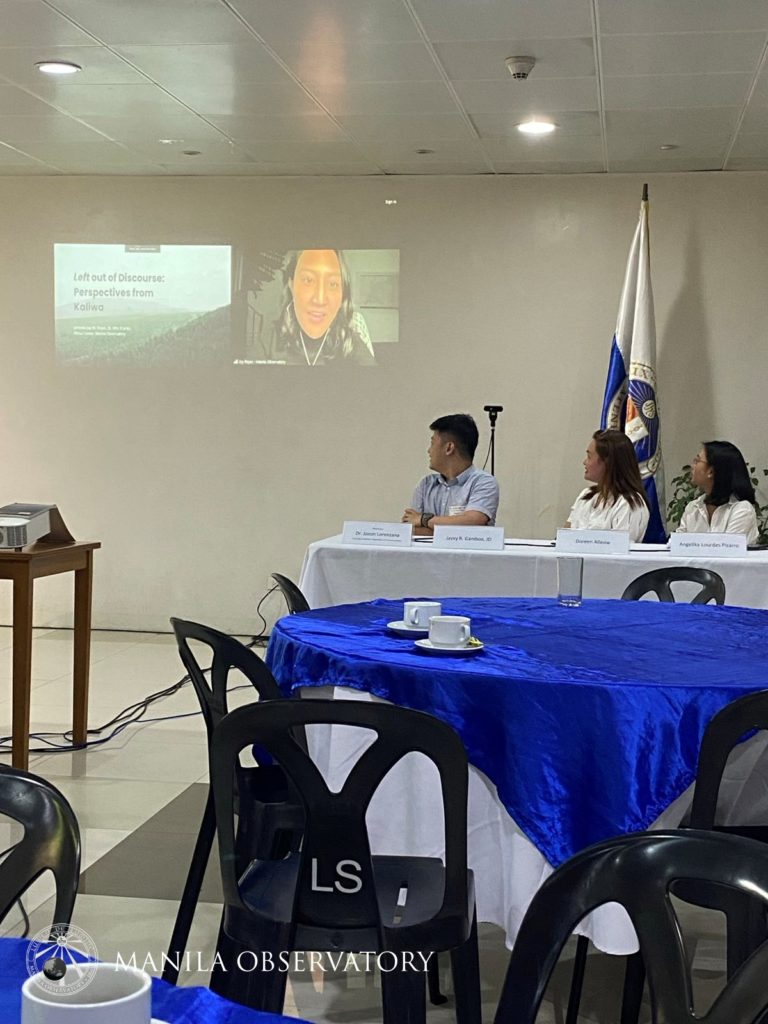
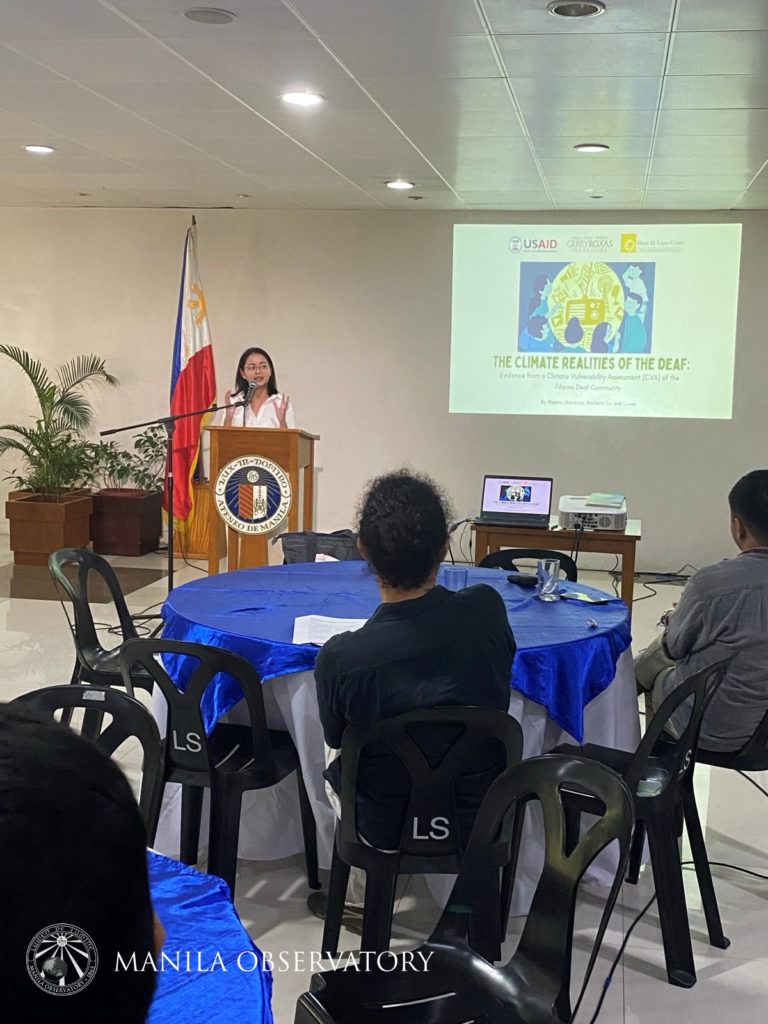
Ms. Pizarro shed light on the unique climate realities faced by the Filipino Deaf community, highlighting the urgent need for appropriate solutions and inclusive policies. Being an often-overlooked demographic in climate discourse, the deaf community faces heightened risks due to communication barriers, cultural discrimination, and limited access to vital information and services. She also talked about Project Signd which aims to increase the deaf’s climate resilience through empowerment, as communication challenges pose significant barriers during emergencies, with inaccessible early warning systems exacerbating their vulnerability. Ms. Angelika called for accessible information, evidence-based action, and inclusive policy-making to address the needs of the Deaf community. By recognizing and addressing the specific vulnerabilities they face, policymakers can pave the way for a more equitable and resilient response to climate change.
Dr. Allasiw’s presentation on “Indigenous and Local Knowledge (ILK) and Loss and Damage: The Case of Atok, Benguet” emphasized that despite mitigation and adaptation efforts, the negative effects of climate change persist, resulting in significant economic and cultural losses. This study, made in partnership with Manila Observatory as represented by Atty. Reyes and Dr. Ma. Laurice Jamero, is still in its early stages. Preliminary findings reveal that adaptation measures, while vital, do not fully prevent all losses, with Atok farmers experiencing extreme weather events and new pest outbreaks. Dr. Allasiw, in her presentation, raised concerns about the potential erosion of indigenous livelihoods and cultural practices in the face of unprecedented climate change. She also underscored the disproportionate impact experienced by disadvantaged social groups, emphasizing the need to address underlying vulnerabilities to facilitate effective adaptation at the local level.
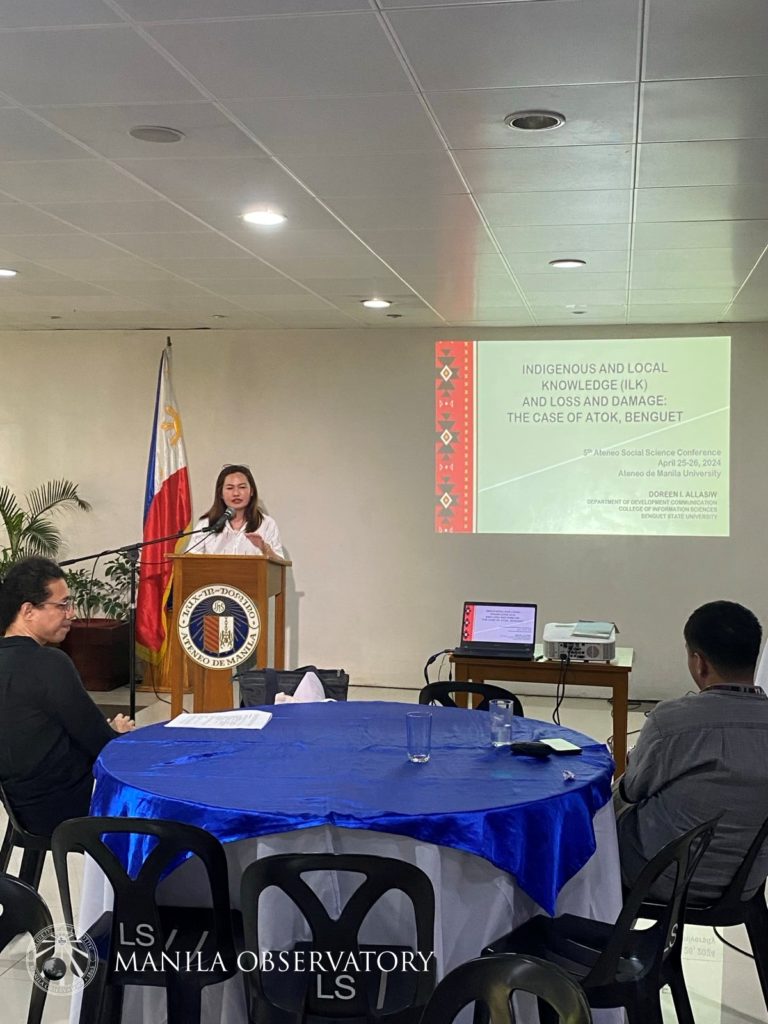
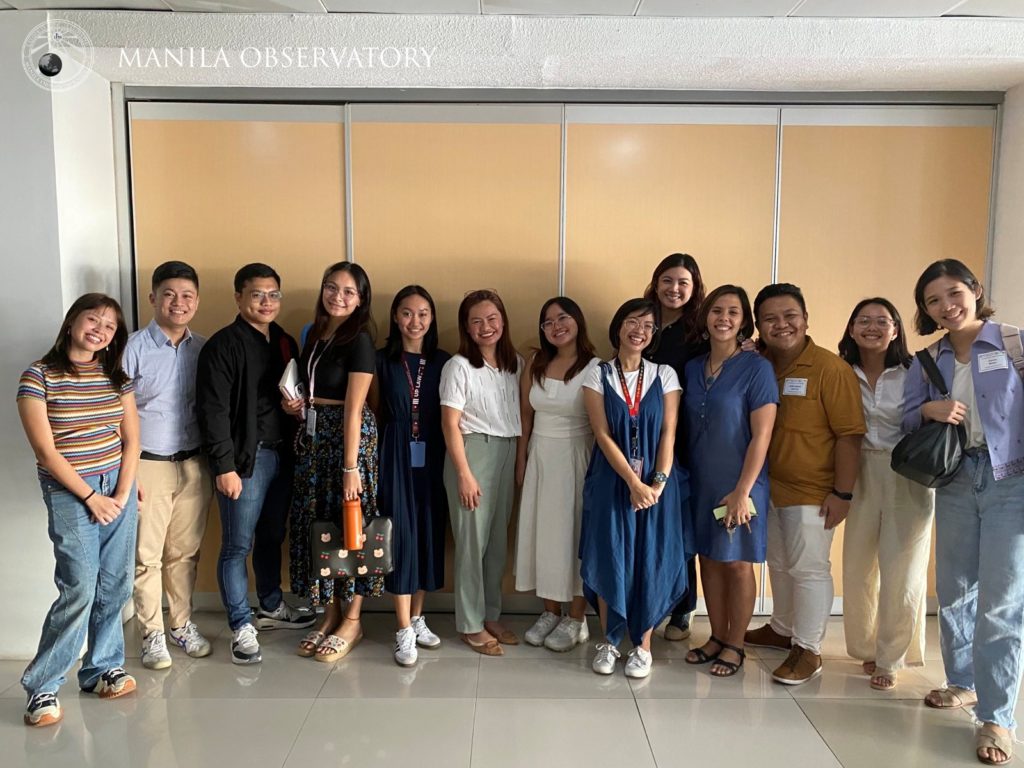
In essence, genuine climate action demands climate justice, centered on the experiences of vulnerable communities. This panel asserted that while international discourse informs, local efforts determine impact. Social sciences are crucial for inclusive policy and accountability. Without them, climate action risks leaving sectors and communities behind, undermining the essence of climate justice and solidarity. The Klima Center is committed to providing science-based policy and decision support, technical assistance, capacity-building, and information-education-communication initiatives to its stakeholders and partners. In line with this commitment, Klima aims to actively share more of its research findings in upcoming conferences.

